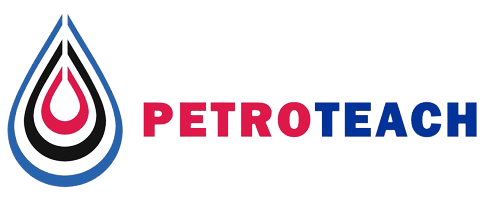PRO 506
Production Optimization Using Nodal Analysis
This course is customizable from one to five-day length for a variety of audiences at appropriate skill and knowledge levels.


This course is customizable from one to five-day length for a variety of audiences at appropriate skill and knowledge levels.

| Code | Date | Location | price (€)* |
|---|---|---|---|
| PRO 506 | 26 – 28 Jun 2025 | Online | 1390 |
| PRO 506 | 8 – 10 May 2025 | Stavanger | 2990 |
* Prices are subject to VAT and local terms. Ph.D. students, groups (≥ 3 persons) and early bird registrants (8 weeks in advance) are entitled to a DISCOUNT!
Nodal or Systems Analysis approach allows selection of optimum components under varying field and reservoir conditions. The course provides practical instructions on design and analysis of naturally flowing oil and gas wells, as well as gas-lift and ESP systems based on nodal or systems analysis concepts. The course will provide an awareness of the fundamentals of production by introducing fluid flow, flow correlations, PVT/Black Oil, and discussing the inflow performance relationship (IPR), vertical lift performance (VLP), nodal analysis, and pressure gradient curves. This course is customizable from one to five-day length for a variety of audiences at appropriate skill and knowledge levels. Shorter and concise curriculum is available for project and asset managers interested in expanding their understanding of the effects of artificial lift on the performance of their assets.
o Pre-Test
o Production optimization
o Need for and selection of artificial-lift methods like gas lift and ESP
o Gas-lift system components
o ESP system components
o Software introduction (for course lengths 3-5 days)
o Systems analysis for flowing wells
o Inflow performance relationship
o Outflow performance relationship
o Liquid loading in gas wells
o Selection of design parameters based on field measurements
o Gas-lift wells o Systems analysis
o Design
o Analysis
o ESP Wells
o Systems analysis
o Design
o Analysis
o Preliminary automation concepts
o Network Optimization Basics
o Post-test

Dr. Rajan Chokshi works as an artificial lift and production ‘Optimizer’ for Accutant Solutions, a consulting firm out of Houston, USA. He has over 34 years of experience working with a national oil company, research consortia, consulting and software firms, and a service company in various roles from engineer, software developer, project manager, trainer, consultant, and a senior business leader. Dr. Chokshi has worked on projects globally in the areas of multi-phase flow, artificial lift, production webinars and trainings, Dr. Chokshi continues to conduct workshops for practicing professionals globally in SPE and private forums. As an adjunct faculty, he has taught at Texas Tech, Missouri S&T, U of Southern California, and continues to teach at the U of Houston. He has served on various SPE committees like production & facilities advisory, global training and production awards. He is incoming chair of awards & recognition committee. He was co-chair of an SPE artificial lift workshop, and is co-chair of SPE forum on production issues in unconventional. He has been selected twice as an SPE Distinguished Lecturer for the 20152016 and 2018-2019 years.
Well analysts, artificial-lift engineers, production engineers, and other technical personnel who are involved in the analysis and design of naturally flowing oil wells, gas wells, and high-rate artificial-lift systems, such as gas-lift and ESP systems.
o Basic to Intermediate
After completing this course, participants will learn:
o Explain major factors in the artificial-lift process
o Analyze cessation of the natural flowing period of an oil well. Identify conditions in which a gas well ceases to flow because of liquid loading
o Identify components of a gas-lift and ESP system. Design and analyze gas-lift and ESP system.
o Use software tools to:
o Develop a well model for a well under naturally flowing, gas-lift, or ESP conditions
o Conduct sensitivity analysis on various components of well system for a robust design
o Adjust input parameters based on field measurements.
o Understanding of basic petroleum engineering concepts. Attendees should have petroleum engineering background or at least five years of working experience in the industry.
o For 3-5 days classes: Each participant needs to bring a laptop for solving class examples using software to be provided during class. Laptop needs to have a current Windows operating system and at least 500 MB free disk space. Participant should have administrator rights to install software.
Registration is now OPEN!
* Prices are subject to VAT and local terms. Ph.D. students, groups (≥ 3 persons) and early bird registrants (8 weeks in advance) are entitled to a DISCOUNT!
For more details and registration please send email to: register@petro-teach.com
Would you like a PetroTeach training course delivered at a time or location to suit you?
click for request in house